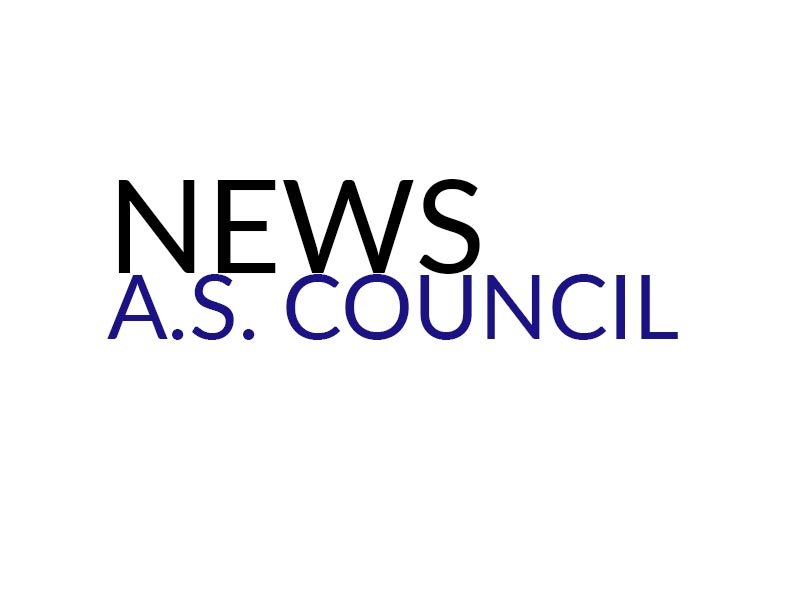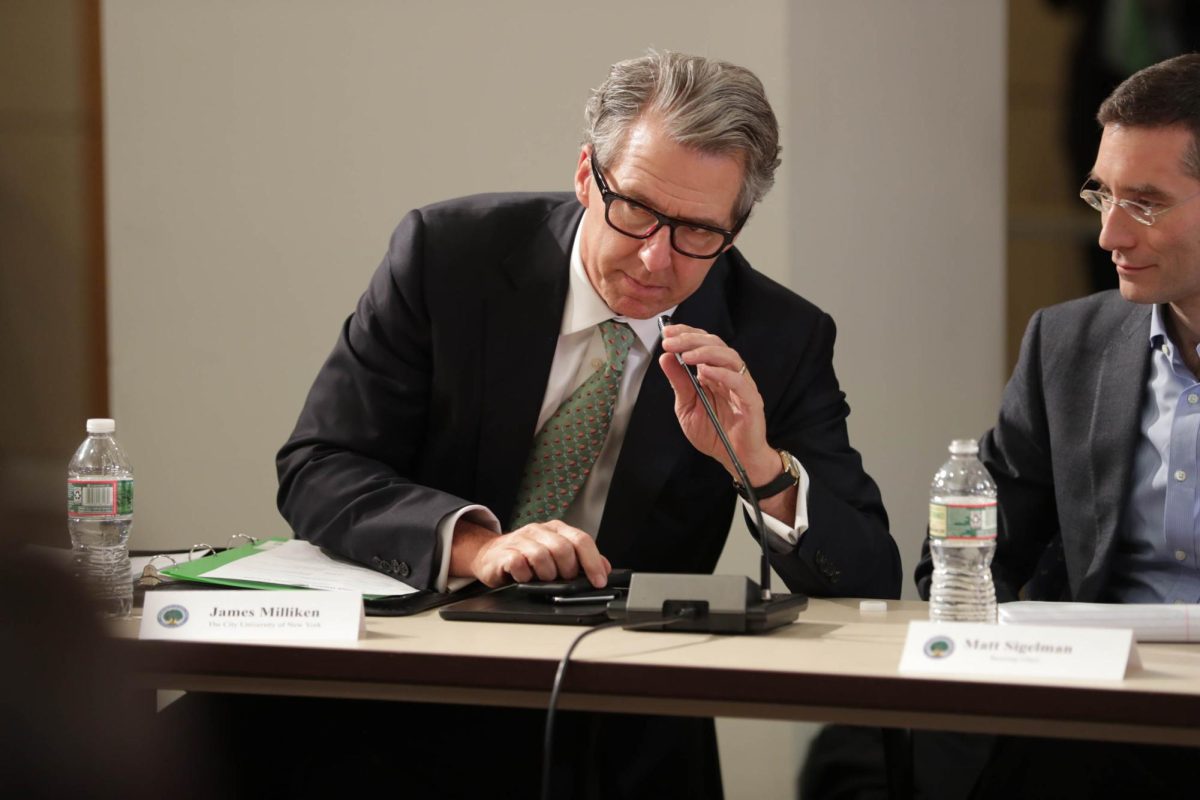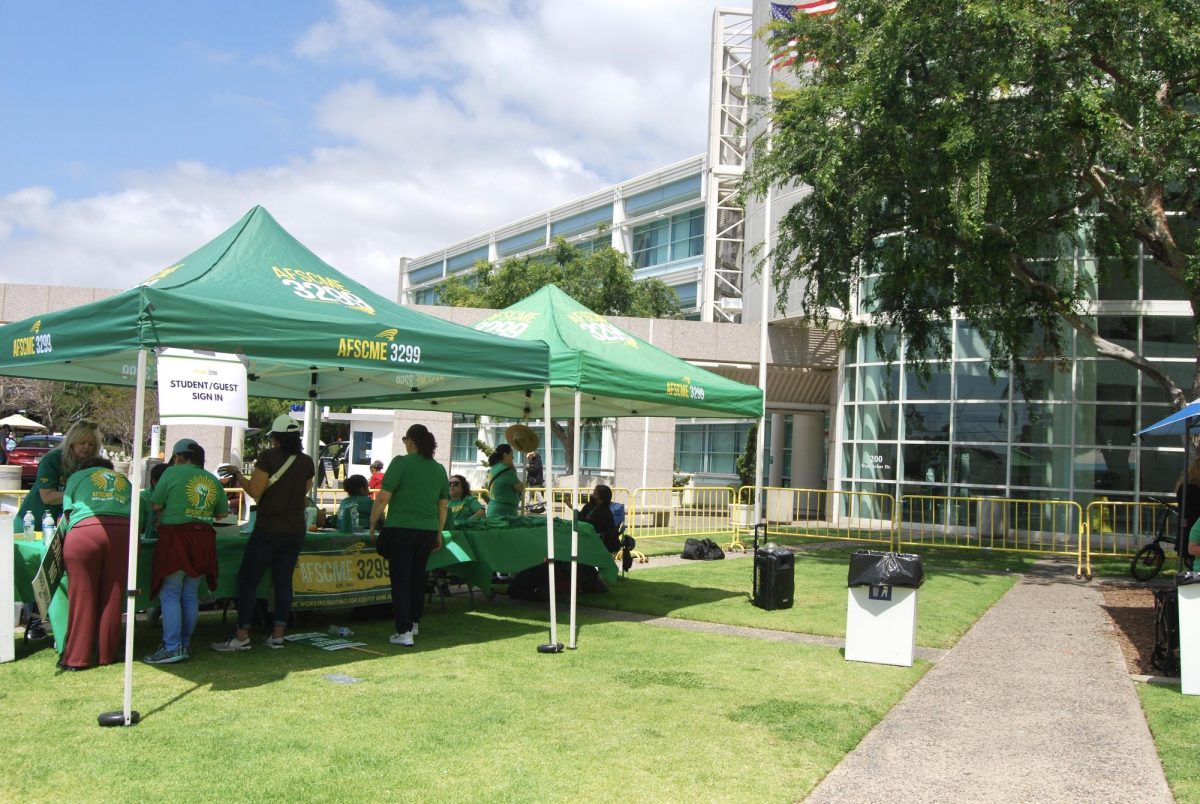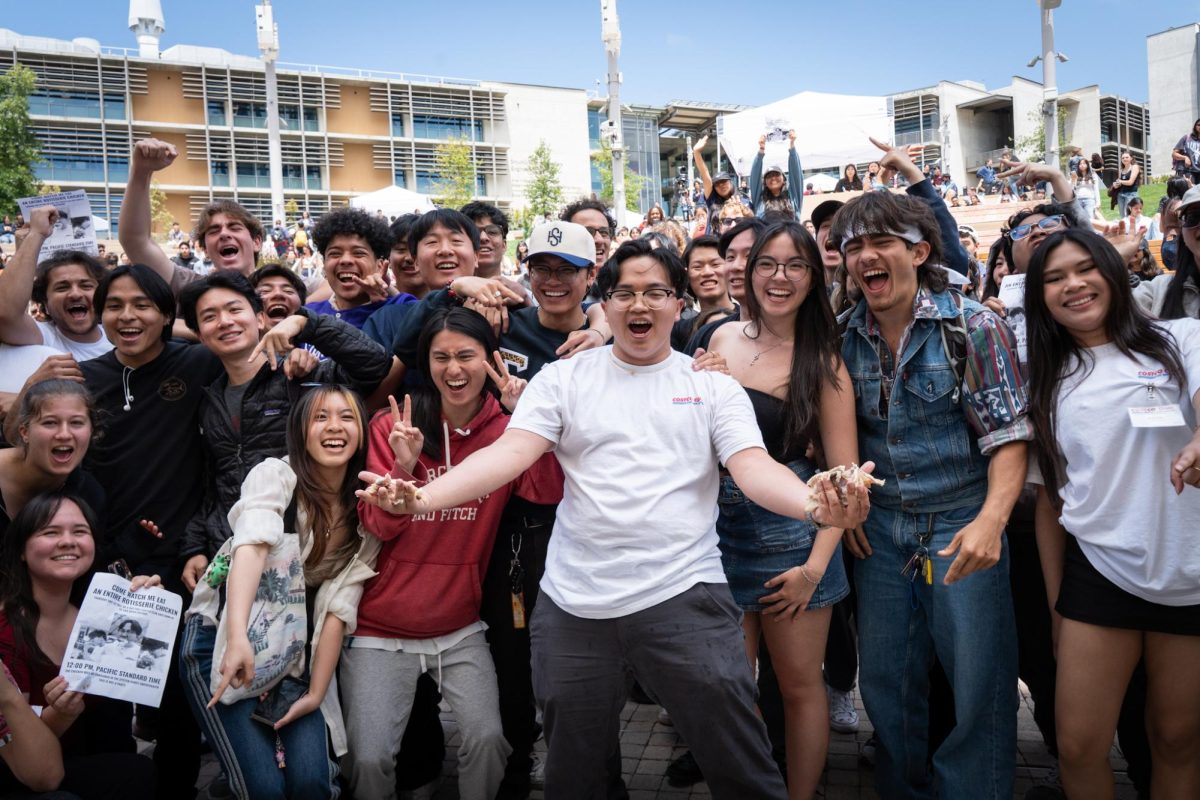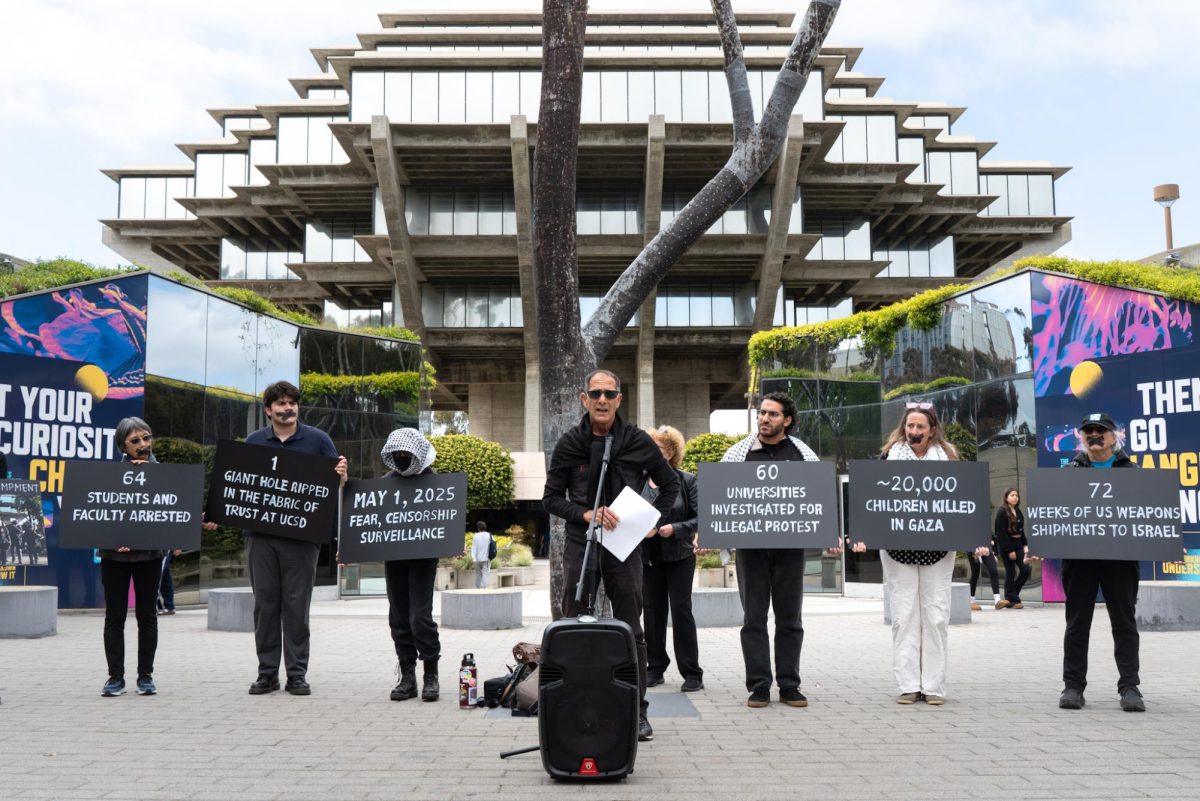Good news: I brought food to the meeting so my stomach wouldn’t be grumbling out of hunger. Bad news: I am notorious for my loud burping, so throughout the meeting, I was praying that I wouldn’t do one of my famous so-loud-it-shakes-the-earth burps and disrupt the meeting.
First up: Public Input. Only one person from the public spoke today, and — you guessed it — it was regarding the Che Cafe. The undergraduate student expressed his “dismay” and “disgust” over the Che’s eviction notice. He then called A.S. President Boparai a “coward” for allegedly endorsing this resolution, which Boparai later denied. I’m pretty sure I saw some council members snickering when this accusation was made, and, not going to lie, I snickered too at that ridiculous accusation.
After this, someone put a video up on the screen about a community overpopulated by cats. Maybe I’m tripping. Nope, that definitely just happened.
After that somewhat bizarre video, Vice Chancellor-Student Affairs Juan Gonzalez walked in to make a special presentation that ended up being a Q&A between him and the council members. AVC Student Life Gary Ratcliff was also there but never said a word. Maybe he was there for moral support?
President Boparai asked about the differences between UCSD and the other campuses Gonzalez has served at. Gonzalez discussed his time at Georgetown University and how the fact that it is a private institution meant that there are more stipulations and rules to adhere to regarding campus life and what sort of events can occur on campus, which is very different from the public UC system. He then mentioned his time at the University of Texas at Austin and its “enormous” passion for football and athletics, as well as a love for beer. Bruh, that’s everywhere.
Anyway, Gonzalez spoke extensively about his desire for a more healthy and safe environment for students. He wants to extend the hours of the Student Health Services and to also hire more clinicians and possibly even psychiatrists for Counseling and Psychological Services. This would reduce the waiting period between the time a student makes an appointment and is able to be seen. Furthermore, the clinicians, he believes, can “triage” the severity of the students’ needs to determine how soon they need to be seen by a professional. However, for any of this to happen, funding needs to be increased for these services, and he is currently working on that, though he wasn’t specific about how.
Gonzalez also expressed his qualms about the way freshmen are thrust into college life and are influenced by the sometimes negative aspects of that, such as the pressure to drink while underage. To combat this issue, events, such as Triton Fest, were and are being created in order for students to have fun without the pressure to drink. He wants to shift the anticipation of one large event — i.e. Sun God Festival — to multiple events dispersed throughout the year.
Furthermore, many council members asked about Gonzalez’s concerns regarding the increasing enrollment at UCSD. Surprisingly, Gonzalez believes that enrollment for the 2015–16 academic year will not exceed this year’s and that enrollment will remain fairly stagnant for awhile. This then led into a discussion regarding the UC system’s 20-percent cap on out-of-state enrollment at UCLA and UC Berkeley. Currently, UCSD’s out-of-state enrollment is at 18 percent, according to Gonzalez. When asked how he would respond if UCSD was instructed to put a cap on its non-resident enrollment, Gonzalez said that he would follow those orders because anything more than 20 percent would create an even more serious financial problem.
Next was general Q&A time. AVP Environmental Justice Affairs Sierra Donaldson asked Campuswide Senator Dierking how the Triton Food Pantry was going. According to Dierking, UCSD had a stronger opening than UC Santa Barbara’s, with 207 uses from the UCSD community, including five graduate students. Eventually, the food pantry is hoping to purchase a refrigerator so that it can sell “nutritious” food.
For committee reports, VP Finances and Resources Igor Geyn stated that $1,000 has been allocated to the Muir Quarterly and to the Koala, each. Geyn clarified that, in order for a media organization to receive funding from A.S. Council, it must present a copy of the current issue and that it must include a disclaimer that the views expressed in the paper are not A.S. Council’s. The only way A.S. Council would not approve the request would be if the organization did not correctly follow the requesting process.
Next, Warren Senator Akshay Tangutur presented on the Student Fee Advisory Committee, which oversees student services fees and how they should be utilized. Currently, each student pays $972 a year and SFAC makes recommendations to the VCSA about how this money should be used, which are then sent to the chancellor for approval. Because these are student fees, SFAC keeps the students’ interests in mind. However, since not many students actually know what SFAC or the VCSA does, SFAC is going to run a public relations campaign next quarter to inform students and to hopefully garner more student input since student input is what fuels the allocation of this pricy fee.
Afterward, it was on to new business. All I heard was Speaker Mehryar say free Persian food next week. He had me at free food, which I think was the first draft of “You had me at ‘hello.’” And on that note, the meeting was adjourned and final roll call was taken. And I successfully made it through the meeting without burping too loudly.
Good night!


